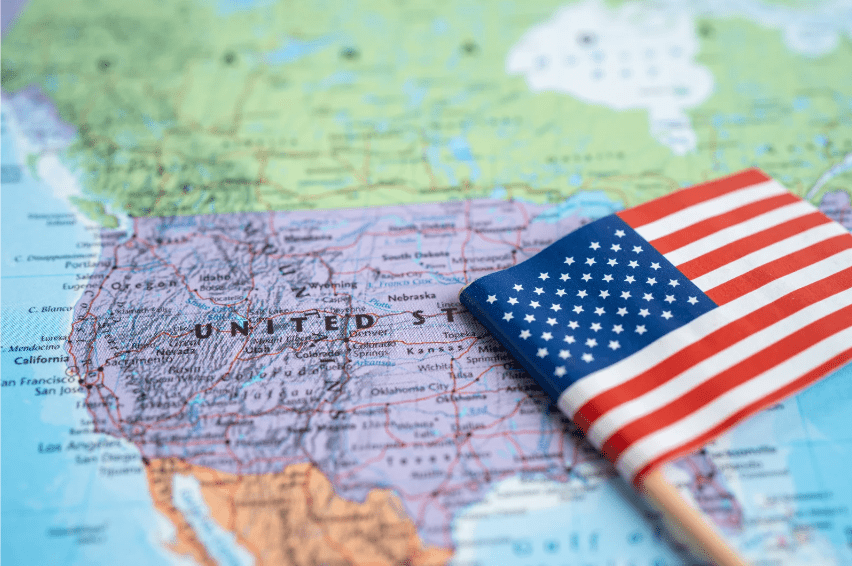Blue Water Veterans get Agent Orange Benefits as of January 1, 2020, when the Blue Water Navy Vietnam Veterans Act of 2019 took effect.
What is Agent Orange?
During the Vietnam War, the U.S. military used herbicides such as Agent Orange to clear trees and plants. The military sprayed Agent Orange by aircraft, trucks, and hand-sprayers. As a result, the spraying contaminated the food crops and water sources of both enemy combatants and nearby civilians. Unfortunately, our own troops have suffered the most of the collateral damage from Agent Orange use.
Dioxin
One of the most toxic byproducts of Agent Orange is called dioxin, which is a highly-persistent chemical compound that lasts for many years in the environment. Most human exposure is through food because dioxin accumulates in the fatty tissue of fish, birds and other animals. However, you can also be exposed through airborne transmission.
Many health problems related to Agent Orange do not arise until years after service. The longer it takes a veteran to file an Agent Orange claim, the more likely VA is to deny it. If you are planning to file a claim many years after exposure, then you should hire an experienced representative to assist you.
Blue Water Veterans previously did not get Agent Orange presumption
For over 2 decades, the Agent Orange presumption extended only to veterans who either set foot in Vietnam or served on boats patrolling inland waterways (also known as “Brown Water”). This excluded thousands of veterans who served on Navy ships offshore during the same period.
Which Navy ships were likely exposed to Agent Orange?
VA compiled a list of Navy and Coast Guard ships that were probably exposed to Agent Orange during the Vietnam War era. The list contains the following 5 categories:
- operating primarily or exclusively on Vietnam’s inland waterways,
- operating temporarily on Vietnam’s inland waterways,
- docked to shore or pier in Vietnam,
- operating on Vietnam’s close coastal waters for extended periods with evidence that crew members went ashore, and
- operating on Vietnam’s close coastal waters for extended periods with evidence that smaller craft from the ship regularly delivered supplies or troops ashore.
Did You Get Sick Due to Agent Orange Exposure?
In most circumstances, this is a medical question for your doctor. However, if you served in Vietnam or 12 miles offshore between January 9, 1962 and May 7, 1975, and you have any of the 14 disabilities, VA will concede a relationship to Agent Orange exposure:
- Chronic B-cell leukemia,
- Hodgkin’s lymphoma,
- Multiple myeloma,
- Non-Hodgkin’s lymphoma,
- Prostate cancer,
- Respiratory cancers, including lung cancer,
- Soft tissue sarcomas,
- Amyloid light-chain (AL amyloidosis),
- Chloracne,
- Diabetes mellitus type 2,
- Ischemic heart disease,
- Parkinson’s disease,
- Peripheral neuropathy, and
- Porphyria cutanea tarda.
What if I Served in Vietnam But I Never Left the Ship?
The Blue Water Navy Vietnam Veterans Act of 2019 took effect, January 1, 2020. This law made it easier for the Blue Water Navy veterans and their families to get disability benefits due to Agent Orange exposure. If your answer to all of the following questions is “Yes”, then you are probably eligible for benefits under the Blue Water Navy Vietnam Veterans Act:
- Did you serve on a Navy ship offshore Vietnam between January 9, 1962 and May 7, 1975?
- While you were on board, did the ship come within 12 nautical miles of the Vietnamese coast?
- Do you have one of the 14 disabilities VA presumes related to Agent Orange exposure?
What if I Never Served in Vietnam?
Agent Orange and other herbicides used in Vietnam were used, tested, and stored around the world, including some military bases in the United States. If you served at the following locations in the respective time frames, then you were likely exposed to Agent Orange:
- Korean Demilitarized Zone between April 1 1968 and August 31, 1971, and
- Perimeters of U.S. military bases in Thailand between February 28, 1961 and May 7, 1975.
What if VA Denied My Claim?
Keep fighting! Blue Water Navy Vietnam veterans are finally eligible for the same presumptions as those who served inland. The VA’s previous denial does not mean that you don’t deserve benefits. The experts at Disability Help Group can guide you through the process.
Disability Help Group, Call Now for a Free Case Review, 800-700-0652
You may be entitled to significant compensation.
Additional Articles You May Find Helpful
- Can I Get VA 100% for Blue Water Exposure?
- Yankee Station Agent Orange
- Blue Water Agent Orange Update – 2020
- Blue Water Navy Veterans
- Can I Get TDIU for Agent Orange Exposure?
- How Does VA Rate TBI?
- What are VA TBI Residuals?
- What is VA Permanent and Total Disability?
- Can I Work and Get TDIU?
- Can I Get TDIU for PTSD?
- VA Disability Rating for PTSD
- VA Permanent & Total Disability
Additional Information
- List of Agent Orange Ships, October 28, 2019
- Even if your ship is not listed, you can still prove exposure with the ship logs. Click here for the National Archives.







